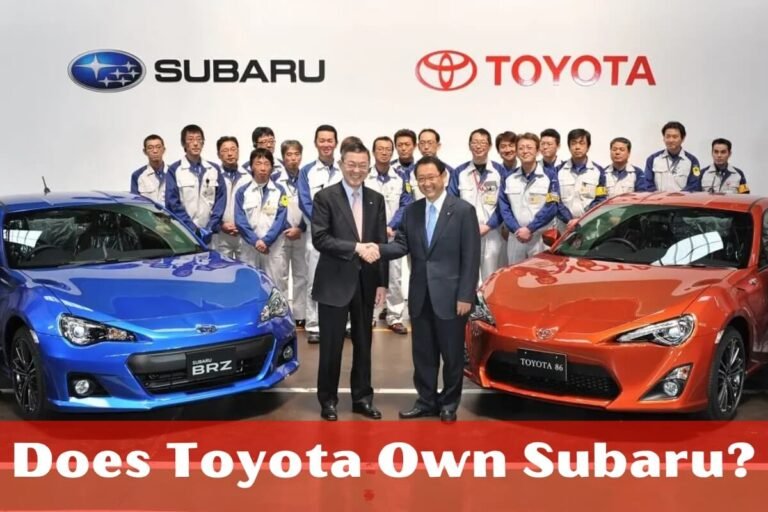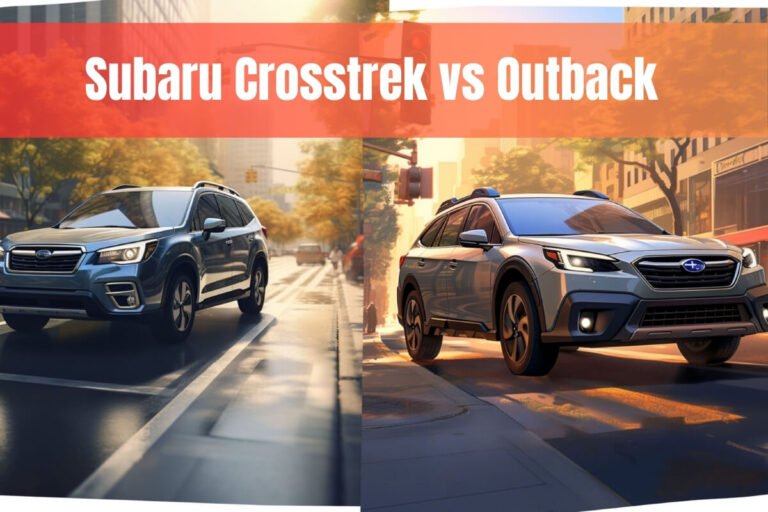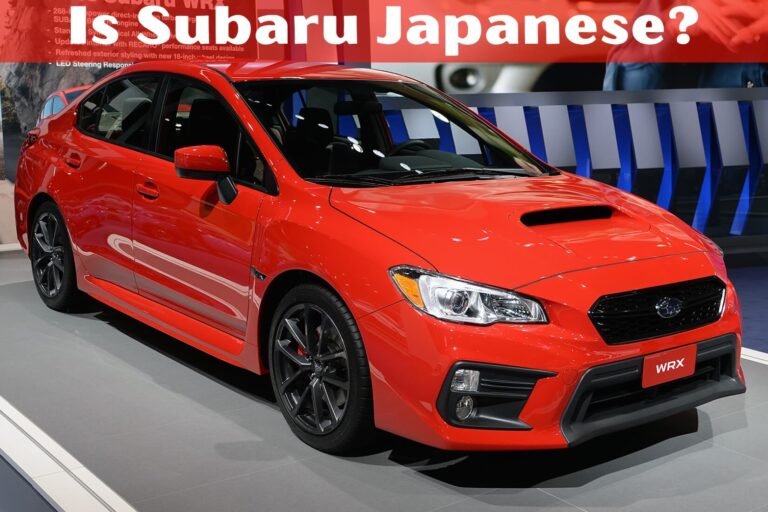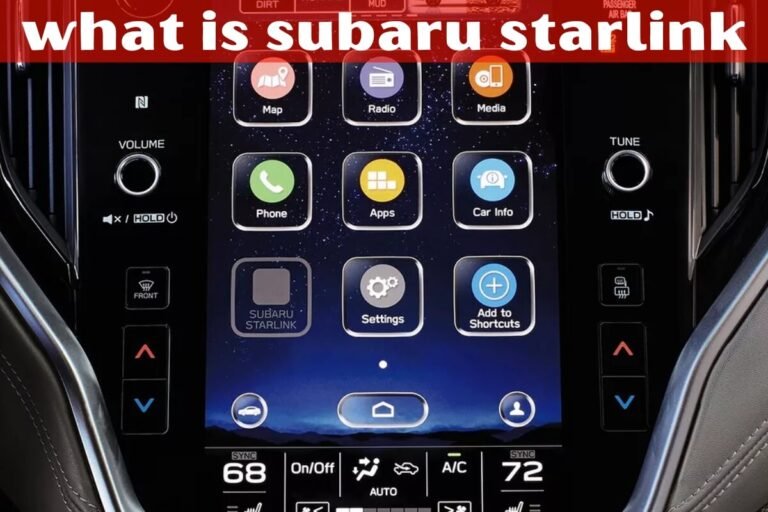Is Subaru a Good Car? Honest & Detailed Review
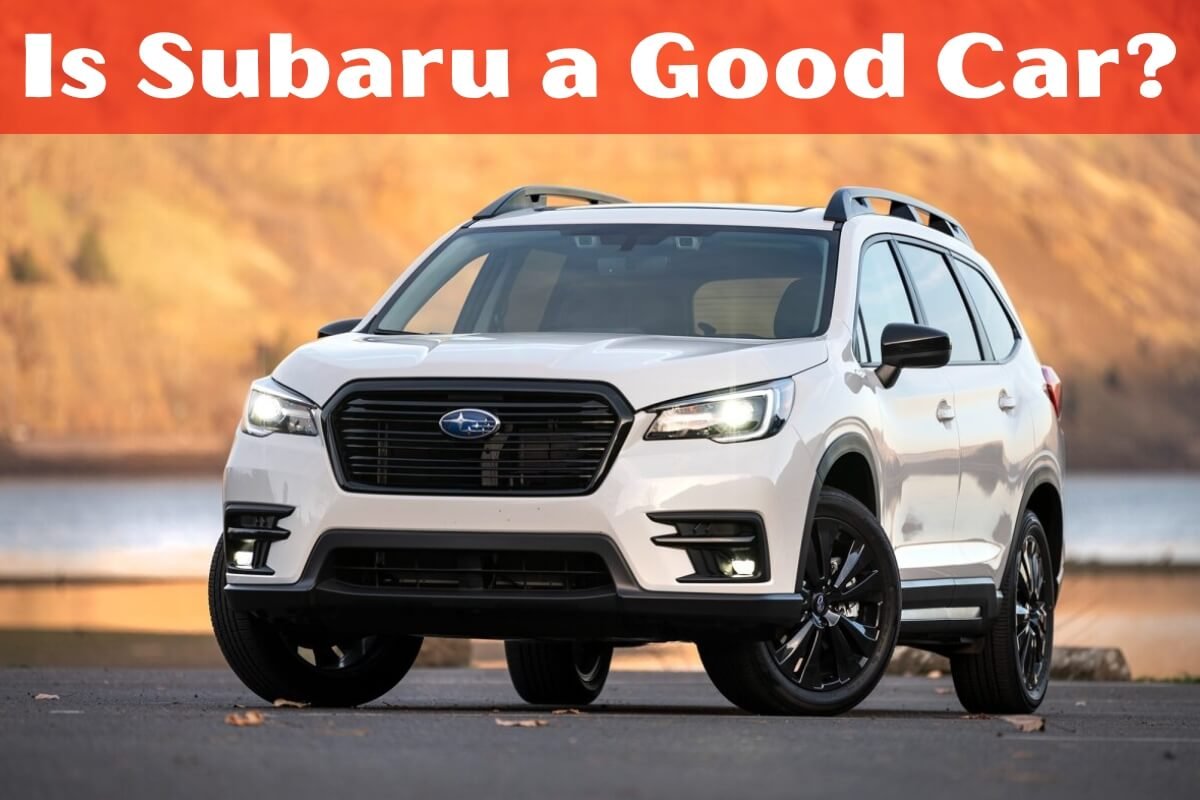
Subaru has made a name for itself with its rugged, all-wheel-drive vehicles and reputation for reliability. But how does it stack up as a car brand? Subaru excels in reliability, safety, and all-weather performance, making it a great choice for those seeking capable vehicles. However, it’s crucial to consider the pros and cons, including cost of ownership, performance, and suitability for various lifestyles. This review will examine Subaru’s strengths and weaknesses, comparing it to other popular brands to help you make an informed decision.
What Makes a Good Car?
Before diving into the specifics of Subaru, it’s essential to understand the criteria that define a good car. While personal preferences play a role, there are several fundamental factors that most buyers consider:
- Reliability and Dependability: A reliable car should have a proven track record of durability, with minimal chances of breakdowns or major issues. Dependability is crucial, as it impacts the overall ownership experience and long-term costs.
- Safety Ratings: Safety should be a top priority for any car buyer. High safety ratings from reputable organizations like the Insurance Institute for Highway Safety (IIHS) and the National Highway Traffic Safety Administration (NHTSA) indicate a vehicle’s ability to protect its occupants in the event of a crash.
- Cost of Ownership: Beyond the initial purchase price, it’s important to consider the ongoing costs associated with owning a car, including maintenance, repairs, fuel efficiency, and insurance premiums.
- Performance and Driving Experience: While performance needs vary from person to person, a good car should deliver a satisfying driving experience, whether it’s in terms of acceleration, handling, or overall responsiveness.
- Features and Technology: Modern cars often come equipped with a range of features and technologies designed to enhance comfort, convenience, and safety. The availability and quality of these amenities can significantly impact the overall ownership experience.
With these criteria in mind, let’s examine how Subaru fares in each of these areas.
Overview of Subaru as a Brand
Subaru is the automobile manufacturing division of Subaru Corporation, a Japanese transportation conglomerate formerly known as Fuji Heavy Industries. Founded in 1953, Subaru has established itself as a brand that caters to a niche market of outdoor enthusiasts, adventurers, and those seeking capable, all-weather vehicles.
One of Subaru’s unique selling points is its commitment to offering standard all-wheel-drive (AWD) systems across most of its model lineup. This feature, combined with the brand’s focus on ruggedness and off-road capabilities, has endeared Subaru to a loyal customer base that values these attributes.
In terms of brand reputation and customer satisfaction, Subaru consistently ranks highly in various surveys and studies. The brand has developed a cult-like following among its enthusiastic owners, many of whom appreciate the vehicles’ practicality, versatility, and reliability.
Reliability and Dependability of Subaru Cars
When it comes to reliability and dependability, Subaru has had its fair share of ups and downs. While the brand has produced several models that are known for their longevity and durability, there have also been instances where certain models have fallen short in terms of reliability.
According to reputable sources like Consumer Reports and J.D. Power, Subaru generally ranks around the middle of the pack when it comes to overall brand reliability. However, it’s important to note that individual model performance can vary significantly.
Most Reliable Subaru Models
Some of the most reliable Subaru models, based on consumer surveys and expert reviews, include:
- Subaru Outback: The Outback, a rugged wagon/crossover, has consistently been praised for its reliability and dependability. The 2019 model, for instance, received a 5 out of 5 predicted reliability rating from Consumer Reports.
- Subaru Forester: Another popular choice among Subaru enthusiasts, the Forester compact SUV has garnered recognition for its reliability. The 2020 model earned a 5 out of 5 rating for reliability and customer satisfaction from Consumer Reports.
- Subaru Crosstrek: The Crosstrek, Subaru’s smallest crossover SUV, has also proven to be a dependable choice. The 2021 model received an overall reliability rating of 81 out of 100 from J.D. Power.
Least Reliable Subaru Models and Common Issues
While Subaru has produced many reliable models, some have struggled with reliability issues. Here are a few examples of Subaru models that have faced reliability challenges, along with some common problems reported by owners:
- Subaru Ascent: Despite being a relatively new addition to Subaru’s lineup, the Ascent three-row SUV has faced reliability concerns, particularly with its transmission, climate system, power equipment, and in-car electronics.
- Subaru WRX: The performance-oriented WRX, while praised for its driving dynamics, has received lower reliability ratings from sources like Consumer Reports, with issues related to the clutch and overall comfort and features.
- Common Problems: Some of the most frequently reported issues across various Subaru models include excessive oil consumption, faulty infotainment systems, cracked windshields, and unintended acceleration.
It’s worth noting that Subaru’s average annual repair costs and frequency of visits for unscheduled repairs are generally on par with or slightly better than the industry average, according to sources like RepairPal.
Safety Ratings of Subaru Vehicles
Safety is an area where Subaru has consistently excelled. Many of the brand’s models have earned top safety ratings from organizations like the IIHS and NHTSA, thanks to their robust construction and advanced safety features.
The Subaru EyeSight driver assistance technology, which includes features like adaptive cruise control, lane-keeping assist, and pre-collision braking, has been instrumental in enhancing the safety of Subaru vehicles. Additionally, Subaru’s commitment to all-wheel-drive systems contributes to improved traction and stability, which can be beneficial in various driving conditions.
Some of the standout Subaru models in terms of safety include the Outback, Forester, and Ascent, which have consistently earned top ratings and awards from safety organizations.
Cost of Ownership for Subaru Cars
When it comes to cost of ownership, Subaru vehicles tend to fall somewhere in the middle of the pack. While they may not be the most affordable to maintain and repair, they are generally not excessively expensive either.
Maintenance and Repair Costs
According to sources like RepairPal and Consumer Reports, Subaru’s average maintenance and repair costs are slightly higher than those of some competitors, such as Toyota and Honda. This can be attributed to factors like more complex engine access, specialized parts, and higher labor costs in certain regions.
However, it’s important to note that these costs can vary significantly depending on the specific Subaru model, age, and driving conditions. Some models, like the Outback and Forester, have proven to be relatively inexpensive to maintain and repair over the long run.
Fuel Efficiency
In terms of fuel efficiency, Subaru vehicles generally perform well, although they may not be class-leading in this aspect. The brand’s focus on all-wheel-drive systems and boxer engines can sometimes result in slightly higher fuel consumption compared to front-wheel-drive counterparts.
That said, Subaru has made strides in improving fuel efficiency with its newer models, incorporating technologies like direct injection and continuously variable transmissions (CVTs). Additionally, the brand has introduced hybrid and electric options, such as the Crosstrek Hybrid and the all-electric Solterra, which offer improved fuel economy and reduced emissions.
Performance and Driving Experience
Subaru’s unique boxer engine design and symmetrical all-wheel-drive systems contribute to a distinct driving experience that sets the brand apart from many of its competitors.
Boxer Engine and All-Wheel-Drive
The horizontally opposed boxer engine layout, which Subaru has championed for decades, provides a low center of gravity and balanced weight distribution. This, combined with the brand’s symmetrical all-wheel-drive systems, results in improved stability, traction, and handling, particularly in challenging weather and off-road conditions.
Handling and Ride Quality
While not necessarily known for outright performance, Subaru vehicles often receive high marks for their overall handling and ride quality. The suspension setups are typically tuned for a balance between comfort and capability, making them well-suited for daily driving as well as light off-road adventures.
Models Known for Performance
While most Subaru models prioritize all-around capability and practicality, the brand does offer a few performance-oriented options for driving enthusiasts:
- Subaru WRX: The WRX is Subaru’s rally-inspired performance sedan, known for its turbocharged boxer engine, responsive handling, and aggressive styling. The even higher-performance WRX STI variant takes things a step further with upgraded brakes, suspension, and aerodynamics.
- Subaru BRZ: Co-developed with Toyota, the BRZ is a lightweight, rear-wheel-drive sports car that prioritizes agility and driving dynamics over outright power. Its balanced chassis and precise steering make it a favorite among enthusiasts seeking an engaging driving experience.
While these performance models may sacrifice some practicality compared to Subaru’s more mainstream offerings, they demonstrate the brand’s commitment to catering to a range of driving preferences.
Is Subaru a Good Car for Families?
Subaru’s lineup includes several models that are well-suited for family life, thanks to their combination of practicality, versatility, and safety features.
The Subaru Outback, for instance, offers ample interior space, a spacious cargo area, and a raised ride height that makes it easy to load and unload passengers and gear. Its standard all-wheel-drive system and impressive safety ratings also contribute to its family-friendly appeal.
Similarly, the Subaru Ascent, the brand’s three-row SUV, is a popular choice for larger families. With room for up to eight passengers, a generous cargo capacity, and a host of family-friendly features like built-in Wi-Fi and multiple USB ports, the Ascent is a practical and capable option for those with active lifestyles.
Is Subaru a Good Car for Off-Road and Outdoor Adventures?
One of Subaru’s strengths lies in its ability to cater to outdoor enthusiasts and adventure-seekers. With their elevated ground clearance, all-wheel-drive capabilities, and rugged construction, many Subaru models are well-equipped for light off-road excursions and outdoor adventures.
The Subaru Outback, in particular, has earned a reputation as a capable off-road wagon, with its raised suspension and advanced all-wheel-drive system allowing it to tackle moderate trails and rough terrain with ease.
Additionally, the Subaru Forester and Crosstrek offer impressive off-road capabilities in a more compact package, making them popular choices for those seeking a nimble yet capable vehicle for outdoor pursuits.
It’s worth noting, however, that while Subaru vehicles are well-suited for light off-roading and outdoor adventures, they may not be as capable as dedicated off-road vehicles or trucks when it comes to extreme terrain or heavy-duty hauling and towing.
Pros and Cons of Owning a Subaru
Like any car brand, Subaru has its strengths and weaknesses. Here are some of the key pros and cons to consider when evaluating whether a Subaru is the right choice for you:
Pros:
- Standard all-wheel-drive systems across most models
- Reputation for safety and durability
- Capable off-road and all-weather performance
- Practical and versatile vehicle designs
- Strong brand loyalty and enthusiast community
Cons:
- Higher maintenance and repair costs compared to some competitors
- Lack of high-performance engine options in non-performance models
- Limited variety in body styles and vehicle segments
- Dated infotainment systems and interior designs in some models
Comparison with Other Car Brands
To better understand Subaru’s position in the automotive market, it’s helpful to compare it with other popular car brands. Here’s a brief overview of how Subaru stacks up against some of its competitors:
Subaru vs. Toyota
Toyota is often lauded for its reliability and dependability, and in many ways, it sets the benchmark in this area. While Subaru may not quite match Toyota’s legendary reliability, it holds its own and offers the added benefit of standard all-wheel-drive across most of its lineup.
Subaru vs. Honda
Like Toyota, Honda is known for producing reliable and efficient vehicles. However, Subaru’s focus on all-wheel-drive capabilities and ruggedness may give it an edge for those seeking more adventure-ready vehicles.
Subaru vs. Ford
Ford offers a diverse lineup of vehicles, from compact cars to full-size trucks. While Ford may have an advantage in terms of variety, Subaru’s niche as an all-wheel-drive specialist and its strong safety ratings make it a compelling choice for those prioritizing those attributes.
Subaru vs. Mazda
Mazda is often praised for its vehicles’ driving dynamics and upscale interior designs. While Subaru may not match Mazda’s sporty handling or premium cabin appointments, it offers a more rugged and capable alternative for those with outdoor-oriented lifestyles.
Is Subaru a Good Car? The Final Verdict
After examining Subaru’s performance across various factors, it’s clear that the brand offers a compelling proposition for many car buyers, especially those seeking capable, all-weather vehicles with a focus on safety and practicality.
While Subaru may not be the outright leader in terms of reliability or cost of ownership, it consistently ranks as a solid performer in these areas. Additionally, the brand’s commitment to standard all-wheel-drive systems, impressive safety ratings, and rugged, adventure-ready designs set it apart from many competitors.
That said, Subaru may not be the ideal choice for those seeking high-performance vehicles, cutting-edge technology, or a wide variety of body styles and vehicle segments. The brand’s offerings tend to cater more towards the practical and outdoor-oriented buyer, rather than those prioritizing outright performance or luxury.
Ultimately, whether Subaru is a good car for you will depend on your specific needs and priorities. If you value all-weather capability, safety, and practicality, and don’t mind sacrificing some performance or cutting-edge technology, a Subaru could be an excellent choice. However, if those factors are less important to you, and you prioritize things like fuel efficiency, low ownership costs, or a wide range of vehicle options, you may want to consider other brands.
As with any major purchase, it’s essential to do your research, test drive multiple models, and carefully weigh the pros and cons before making a decision. By understanding your unique requirements and evaluating how Subaru aligns with them, you can determine if this brand is the right fit for your automotive needs.

